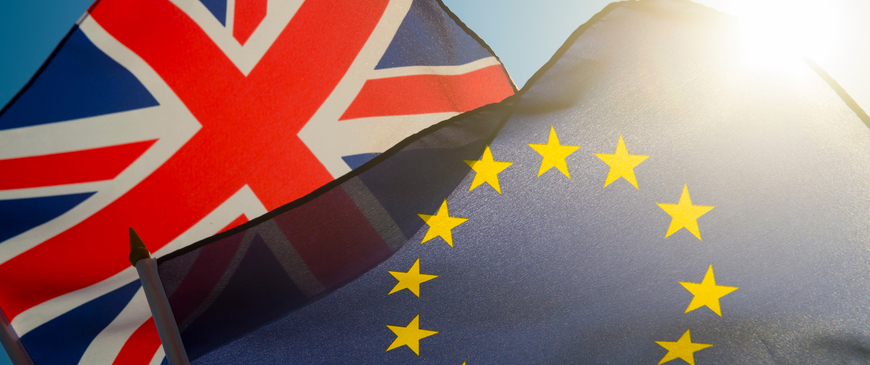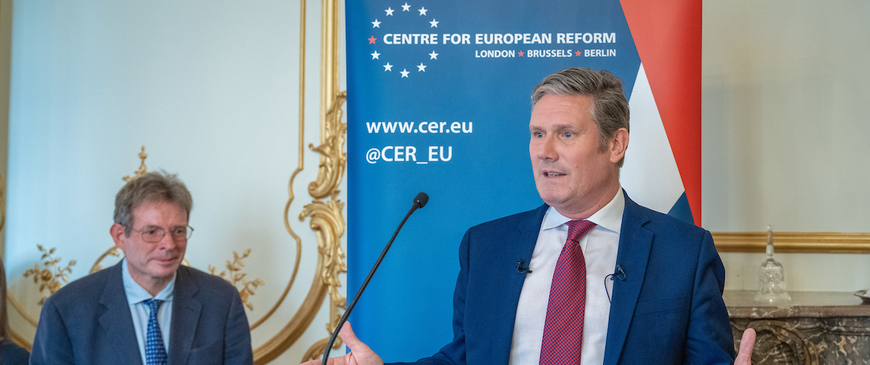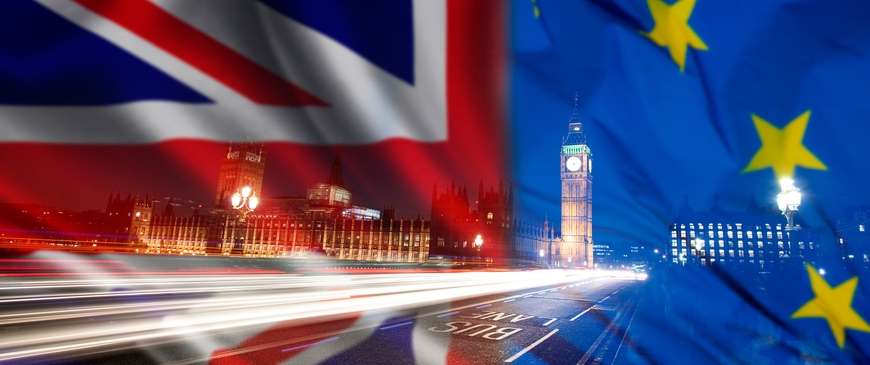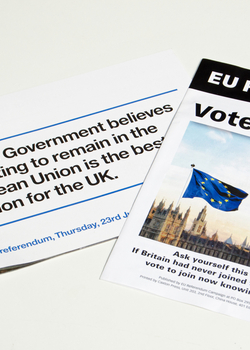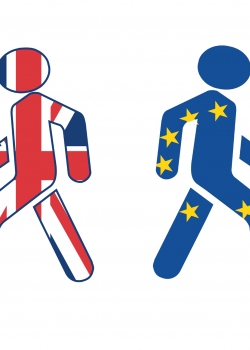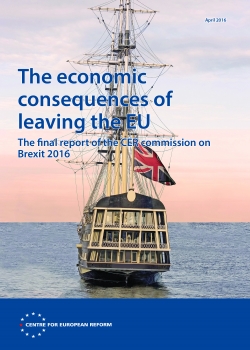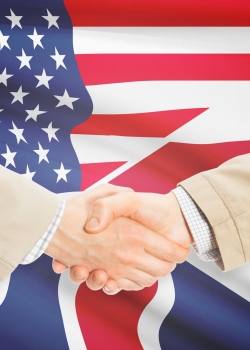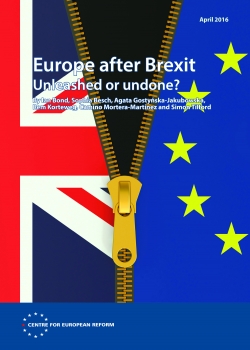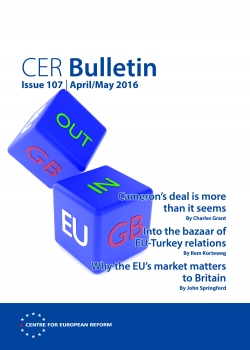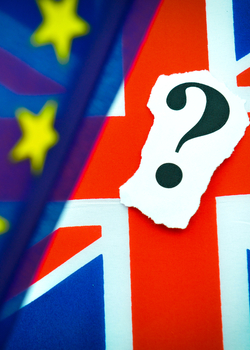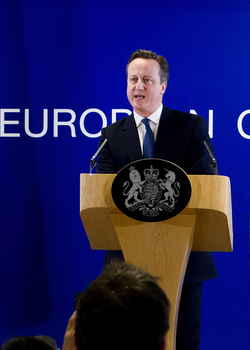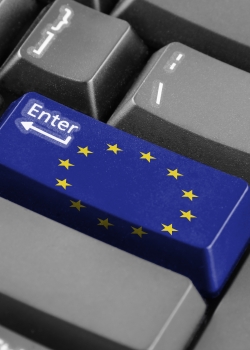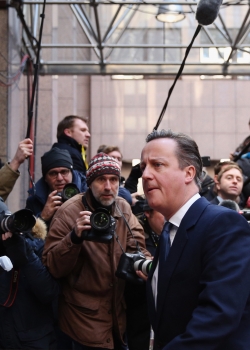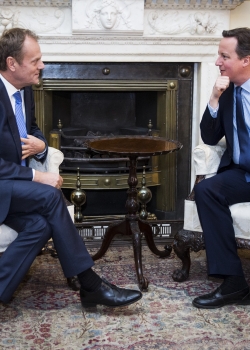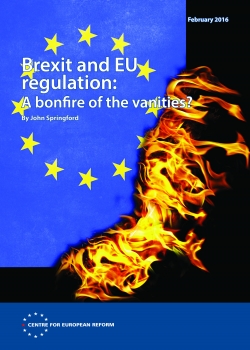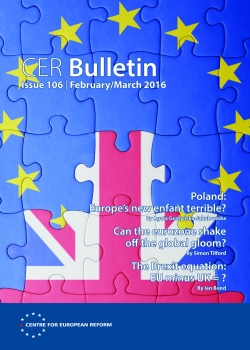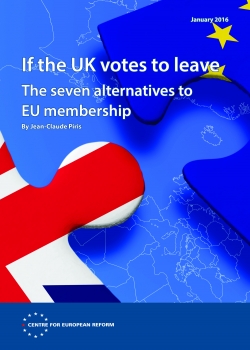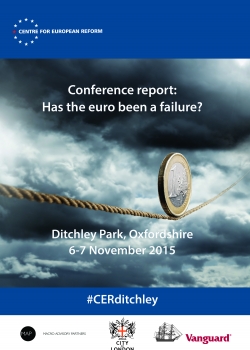Britain & EU member-states
Why Britain voted to leave (if it does...)
26 May 2016
Remain could lose on June 23rd, because of the EU's many problems, the Outers' focus on migration and the difficulty of mobilising younger voters.
The ideologues within
19 May 2016
Brexit will be a vote for less openness to trade, people and foreign culture, and a victory for ‘common sense’ and gut feeling over evidence.
TTIP is no reason to leave the EU
17 May 2016
Opposition to TTIP has become a rallying cry for Brexiters. They are relying on myths about trade agreements, TTIP and the NHS.
An EU army? Four reasons it will not happen
12 May 2016
The EU army is a pipe-dream that blocks progress on Europe's defence needs. It does not reflect the realities of EU defence co-operation.
The seven blunders: Why Brexit would be harder than Brexiters think
28 April 2016
If Britain decides to leave the EU it will have to invoke article 50 TEU that puts the departing member-state at a disadvantage in the withdrawal negotiations.
The economic consequences of leaving the EU: The final report of the CER commission on Brexit 2016
21 April 2016
After leaving the EU, the UK would face an invidious choice: sign up to EU rules and the free movement of labour, or suffer economic damage.
The US, Britain and the EU: Who cares?
21 April 2016
When Obama speaks out against Brexit, he will be protecting America’s interests. That does not mean that he is wrong.
Europe after Brexit: Unleashed or undone?
15 April 2016
If Britain left the EU, the character of the Union would change. The UK has driven economic liberalisation and foreign policy co-operation, and has made the EU's machinery more efficient.
Bulletin Issue 107 - April/May 2016
23 March 2016
- Cameron's deal is more than it seems, Charles Grant
- Into the bazaar of EU-Turkey relations, Rem Korteweg
- Why the EU's market matters to Britain, John Springford
Why the EU's market matters to Britain
23 March 2016
Three economic rules explain why the UK should prioritise trade with the EU over the rest of the world.
Cameron's deal is more than it seems
23 March 2016
Cameron's deal on EU reform is more significant than many commentators realise. It points the way to a looser, more differentiated Union.
Would an 'independent' Britain want to join the single market?
24 February 2016
Three economic rules mean that Britain would seek to join the EU's single market if it were not already a member.
Deal done: Now for the hard work
20 February 2016
David Cameron did better than expected at last night's EU summit. But the deal will sway few voters, and Cameron must now make the case for the EU.
Cameron's EU deal is far from fixed
08 February 2016
In the run-up to the European Council on February 18th and 19th David Cameron is fighting to improve his deal on EU reform. Others are resisting.
Brexit and EU regulation: A bonfire of the vanities?
03 February 2016
EU rules are no straitjacket for the British economy, and repealing them would be damaging: divergent regulations between the EU and the UK would curb trade and investment.
Bulletin Issue 106 - February/March 2016
22 January 2016
- Poland: Europe's new enfant terrible?, Agata Gostyńska-Jakubowska
- Can the eurozone shake off the global gloom?, Simon Tilford
- The Brexit equation: EU minus UK = ? , Ian Bond
The Brexit equation: EU minus UK = ?
22 January 2016
Brexit would change the EU as well as the UK. What kind of partner would a diminished EU be for Britain and the rest of the world?
No, Spain is not 'different': It too needs a grand coalition
15 January 2016
After last month’s elections, where no party obtained an outright majority, Spain needs a grand coalition to secure constitutional reform and face the Catalan problem.
If the UK votes to leave: The seven alternatives to EU membership
12 January 2016
Post-Brexit, if Britain wants access to the single market, it must accept EU rules and free movement, and pay into its budget.
Has the euro been a failure?
11 January 2016
The euro has not been a positive economic and political force. But keeping the single currency together could still be less risky than dismantling it.


